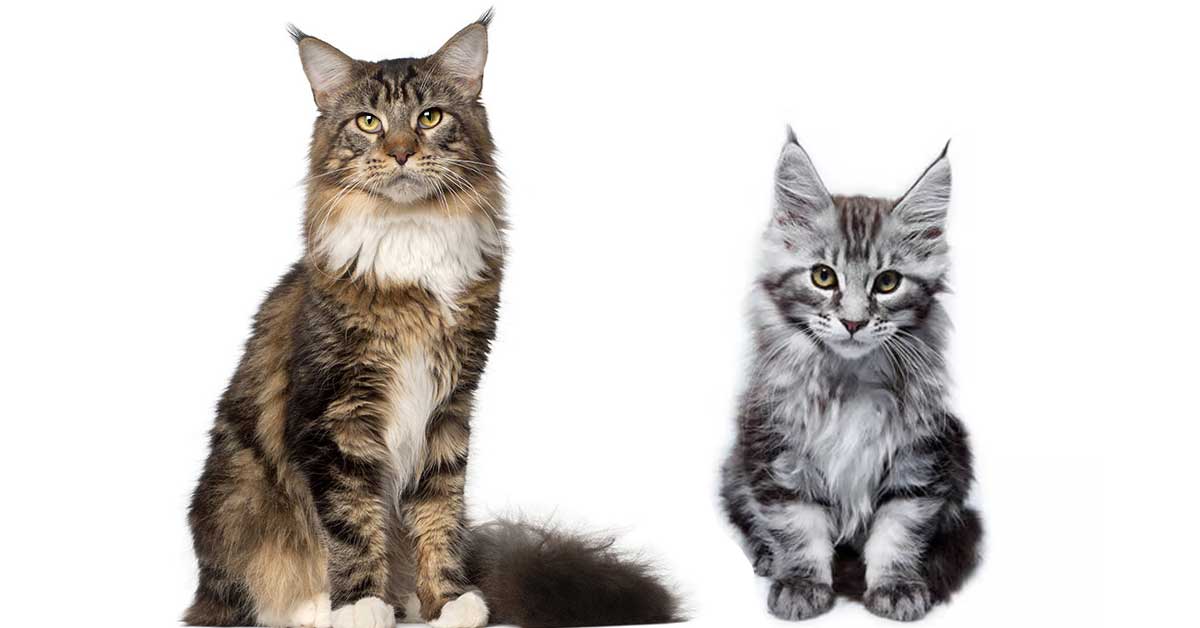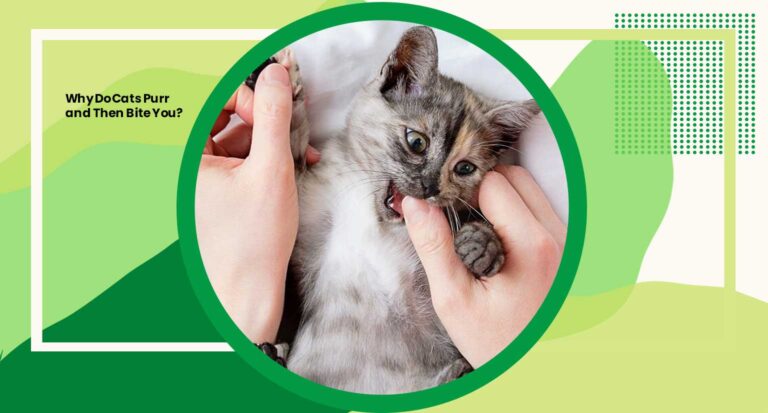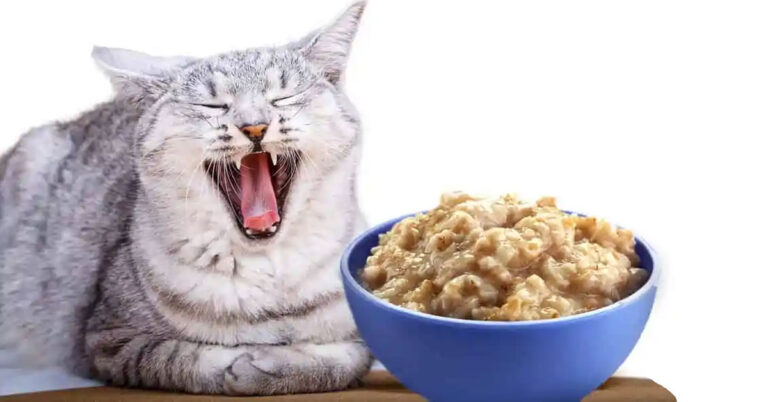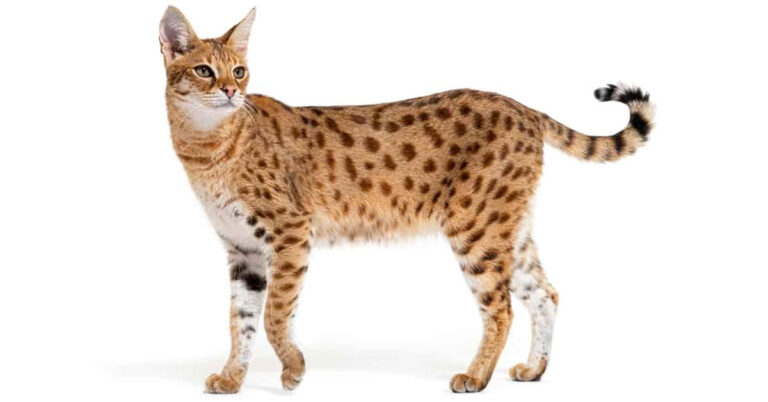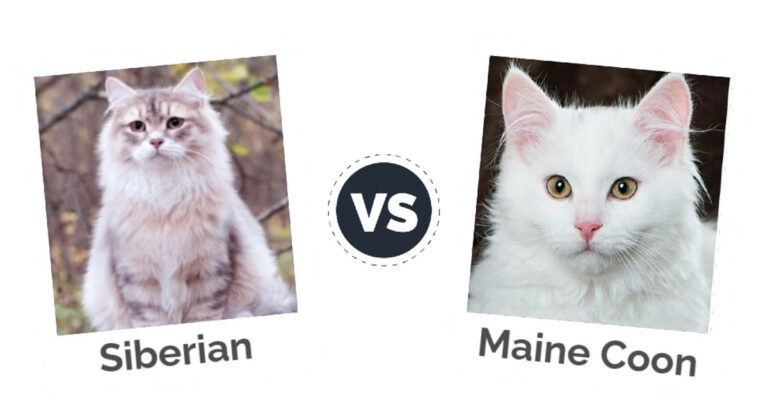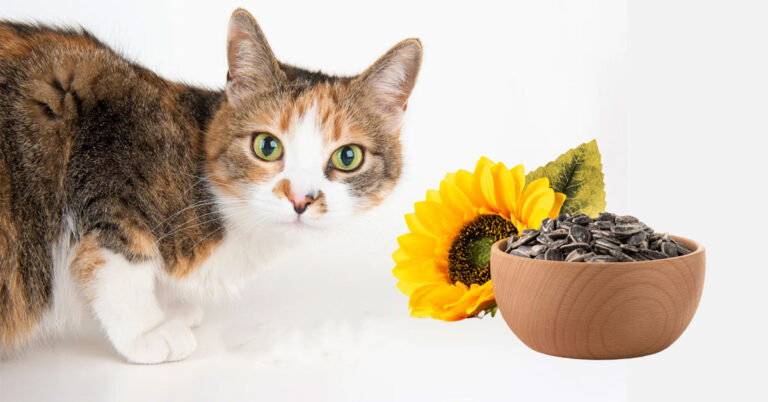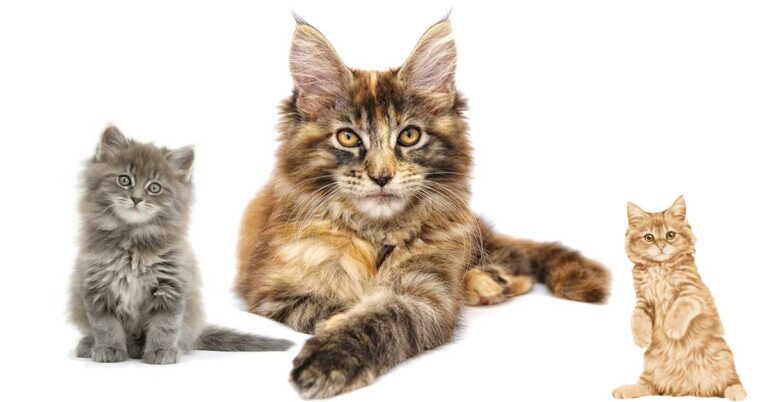how big is a maine coon kitten
If you’ve ever marveled at pictures of large, majestic cats and wondered “how big is a Maine Coon kitten?” – you’re not alone.
This breed, known as the “gentle giants” of the cat world, often piques curiosity due to its size, even at a tender kitten age.
This article aims to provide an in-depth understanding of the growth, size, and development of a Maine Coon kitten. Prepare to be amazed as we explore the intriguing world of these large yet adorable felines.
Overview of the Maine Coon Cat Breed
Maine Coon Cats are one of the largest domesticated cat breeds. Originating from the United States, specifically the state of Maine, they are known for their distinctive physical characteristics and playful personalities.
Their bodies are robust and muscular, with males generally larger than females. Maine Coons boast a thick, water-resistant coat that comes in a variety of colors and patterns.
These cats have long, bushy tails, and their ears are often adorned with tufts of fur. Known for their sociability and intelligence, Maine Coons are often dubbed as “gentle giants”. Whether they are scampering after a toy or lounging on a windowsill, Maine Coons bring joy and companionship to their human families.
How Big Are Maine Coon Kittens at Different Ages
Maine Coon kittens experience rapid growth compared to other cat breeds, and it’s fascinating to see their development at various stages.
At birth, they typically weigh 115 grams to 145 grams. By the time they reach one month, they can weigh anywhere from 450 grams to 570 grams.
At three months, the weight rises to anywhere between 1.6 kilograms to 2.3 kilograms. At six months, they may weigh between 3.2 kilograms to 4.8 kilograms.
As they approach their first birthday, Maine Coon kittens could reach a hefty 5.9 kilograms to 8.2 kilograms.
It’s important to remember that these figures are averages, and individual weight can vary based on diet, exercise, and genetics.
Common Health Issues in Maine Coons Kittens
Maine Coon kittens, like any other breed, can be prone to specific health problems. Hypertrophic Cardiomyopathy (HCM) is a common heart condition in this breed, which can lead to heart failure.
Regular screening is necessary to detect this disease early. Hip Dysplasia, a genetic hip deformity, can also affect Maine Coons.
The symptoms typically include limping or a bunny-hop style of running, and it can be managed with medication and lifestyle adjustments.
Polycystic Kidney Disease (PKD), a condition characterized by the growth of cysts in the kidneys, is another health concern, although less common.
Regular vet check-ups and a balanced diet can significantly contribute to a Maine Coon kitten’s overall health and longevity.
Remember, these potential health issues should not deter you from adopting a Maine Coon kitten.
With appropriate care and regular veterinary check-ups, these kittens can lead a healthy, happy life.
Steps to Properly Train and Socialize Your Maine Coon Kitten
Training and socializing your Maine Coon kitten requires patience, consistency, and a lot of love.
Here are some steps to guide you through this process:
1. Start Early: Start training your Maine Coon kitten as soon as you bring it home. This early introduction to training enables them to adapt to rules and routines more quickly.
2. Set Boundaries: Establish boundaries, such as which areas are off-limits or how to behave around other pets and people. Use gentle deterrents like a spray bottle with water to discourage unwanted behaviors.
3. Litter Training: Most kittens are already litter trained when you bring them home, but some may need a little help. Always ensure the litter box is clean, easily accessible, and private. Reward your kitten when they use it correctly.
4. Socialize: Introduce your kitten to new people, pets, and experiences gradually. This will help them grow into a confident and sociable cat.
5. Playtime: Use toys and games to keep your kitten active and engaged. Playtime can also serve as a training opportunity, teaching them to follow commands and retrieve objects.
6. Positive Reinforcement: Reward desired behaviors with treats, petting, or praise. This encourages your kitten to repeat these behaviors in the future.
7. Regular Vet Check-ups: Regular vet visits are essential to monitor your kitten’s health and ensure they’re up-to-date on vaccinations. These visits can also serve as opportunities to socialize your kitten with new environments and people.
Fun Facts You May Not Have Known About Maine Coon Kittens
Maine Coon kittens are full of surprises and unique characteristics that make them a delightful addition to any family.
Here are some fun facts about this fascinating breed:
- They are Known as the “Dogs of the Cat World”: Maine Coon kittens are incredibly social and love to participate in family activities, much like dogs. They are also known for their dog-like behaviors such as following their owners around the house and playing fetch.
- They are Slow Bloomers: Unlike other cat breeds, Maine Coons take a long time to reach their full size. They keep growing until they are about 3-5 years old.
- Their Coats are Designed for Harsh Winters: The luxurious coat of a Maine Coon kitten is not just for show. It’s a practical feature designed to withstand harsh winters, and their bushy tail can be wrapped around their bodies for added warmth.
- They Love Water: Most cats despise water, but not the Maine Coon. They have water-resistant fur and are known for their love of playing with water.
- They are Excellent Hunters: Maine Coons have a strong hunting instinct from their days as farm cats. Even as kittens, you may notice them stalking and pouncing on their toys.
Tips for Feeding Your Maine Coon Kitten the Right Amount of Food
Feeding your Maine Coon kitten properly is crucial in supporting its rapid growth and development. Here are some tips to guide you:
- Quality over Quantity: Prioritize high-quality kitten food that is rich in protein and fat. These types of food provide the nutrients necessary for your Maine Coon’s growth and energy needs.
- Feed Small, Frequent Meals: Due to their smaller stomach size, kittens should be fed smaller meals more frequently – ideally four to six times a day.
- Monitor Weight: Regular weigh-ins can help determine if you’re feeding your kitten the right amount. If your kitten is gaining too much or too little weight, adjust food portions accordingly.
- Gradual Transition: If you decide to change your kitten’s food, do it gradually over a week to avoid upsetting its stomach.
- Avoid Overfeeding: Maine Coons are known for their large size, but overfeeding can lead to obesity. Stick to the recommended serving sizes and avoid free feeding.
- Fresh Water: Always have fresh water available for your kitten. While Maine Coons may enjoy playing with water, they need clean drinking water separate from their play area.
Conclusion
Bringing a Maine Coon kitten into your life is a joyous and rewarding experience. This breed, with its playful demeanor, sociable nature, and distinctive looks, truly stands out among the feline world.
Although Maine Coons might come with certain health concerns and a unique growth rate, with the right care, regular vet check-ups, and a balanced diet, these kittens can lead a healthy, happy life.
The process of training and socialization might require patience, but the result is a confident, well-behaved cat.
Their quirks, like their love for water and hunting instincts, make them even more endearing. The key to their well-being lies in proper feeding, focusing on high-quality food and the right portions.
Owning a Maine Coon kitten is not just about pet ownership – it’s a journey of companionship, love, and mutual growth.

